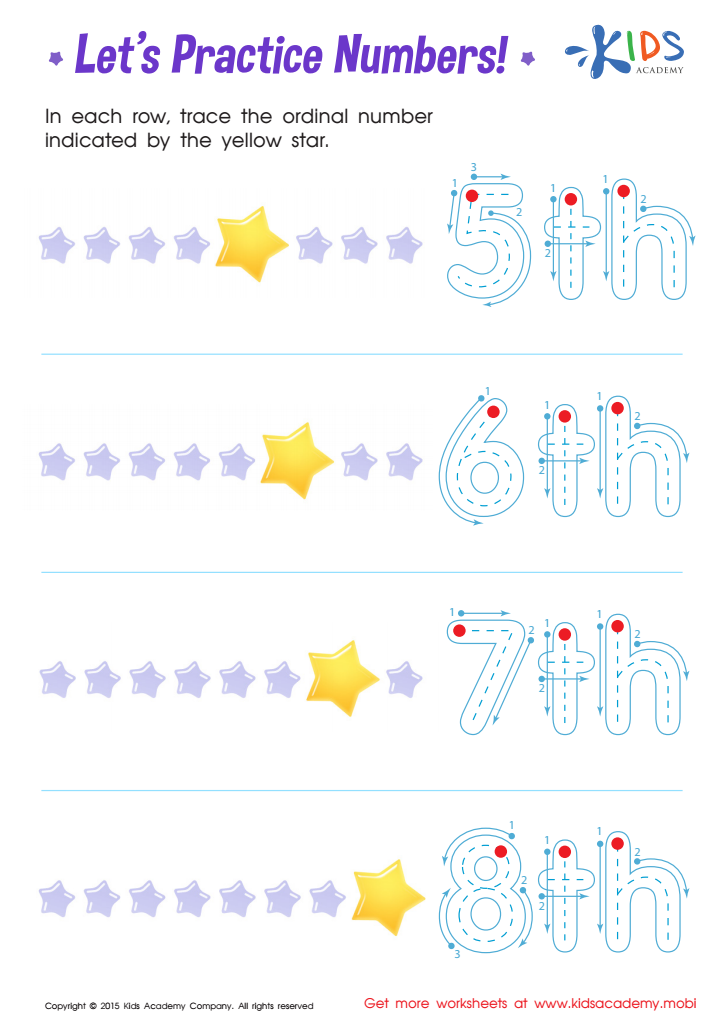Fine Motor Skills Tracing Numbers Worksheets for Ages 3-7
10 filtered results
-
From - To
Our Fine Motor Skills Tracing Numbers Worksheets for ages 3-7 provide an engaging and educational approach to number learning. Designed to enhance fine motor skills, these worksheets help young learners develop the essential hand-eye coordination needed for writing and drawing. Each worksheet presents fun and interactive tracing activities that foster number recognition and counting abilities. Perfect for parents and educators, these worksheets offer age-appropriate challenges that keep young minds focused and entertained. Download now from Kids Academy to boost your child's early math and fine motor skills in a playful and effective way.
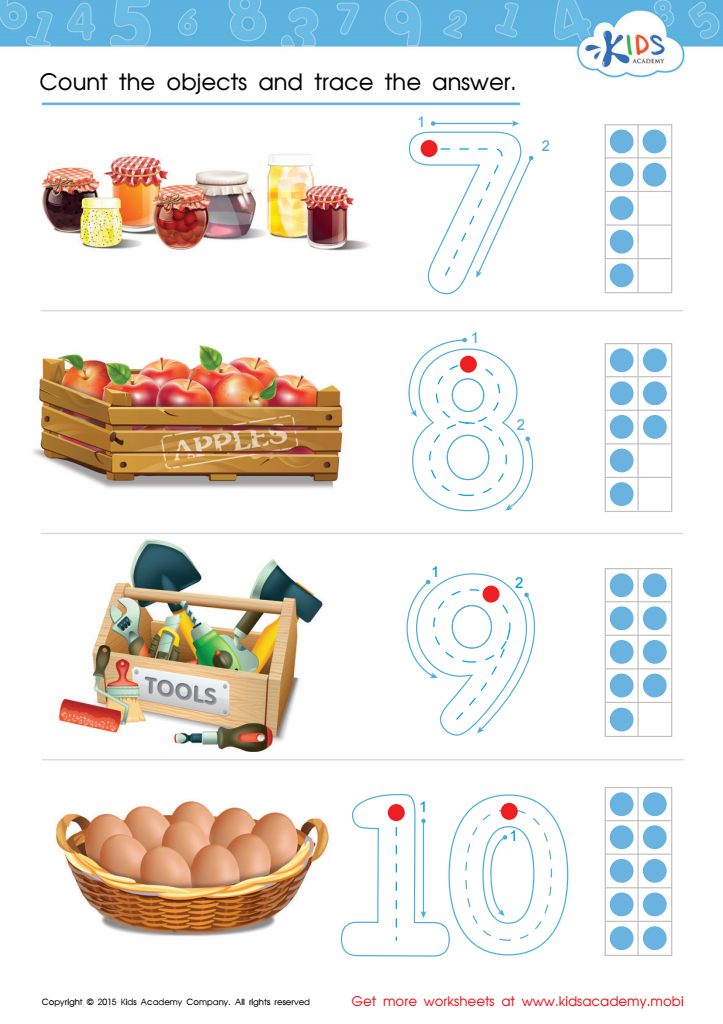

Count and Trace 7 – 10 Worksheet
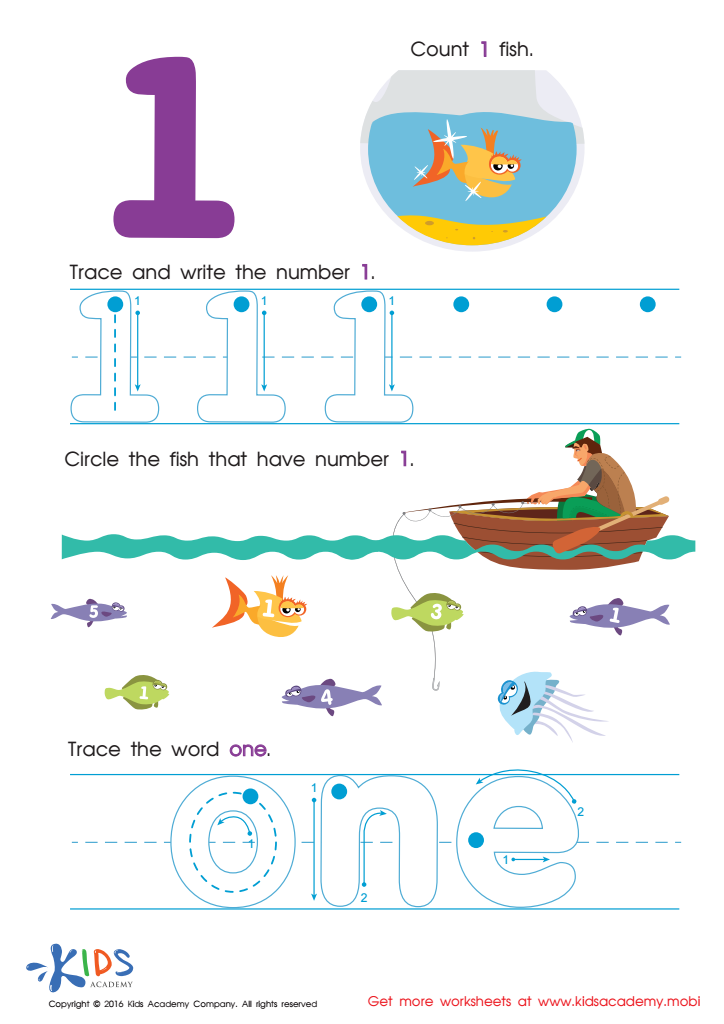

Learning to Write 1 Worksheet
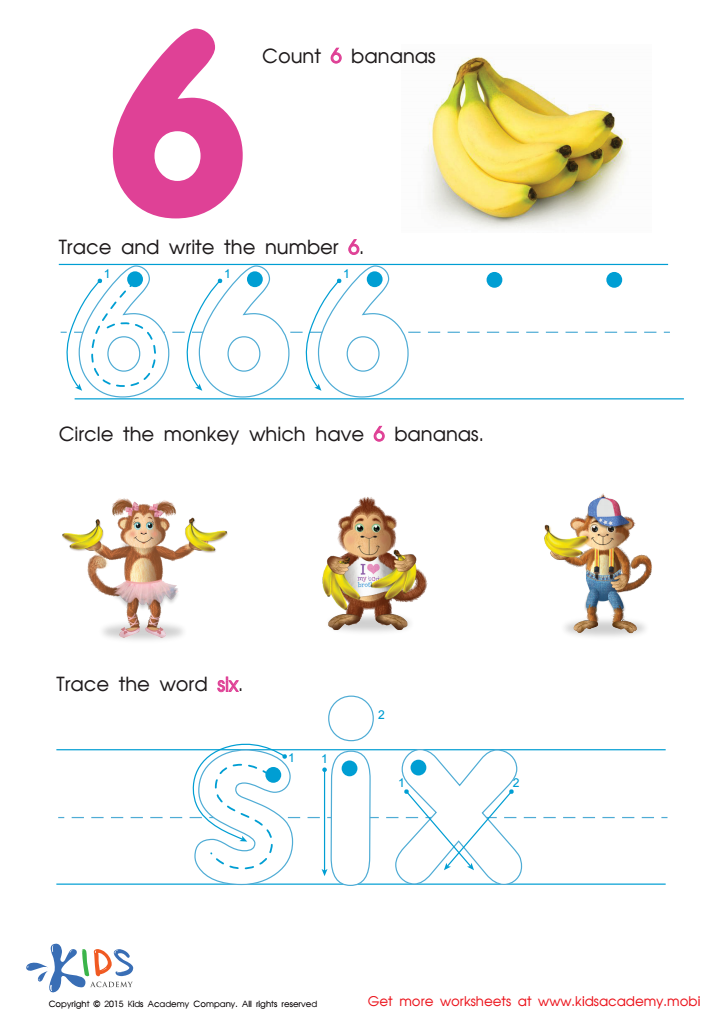

Tracing And Writing Number 6 Worksheet
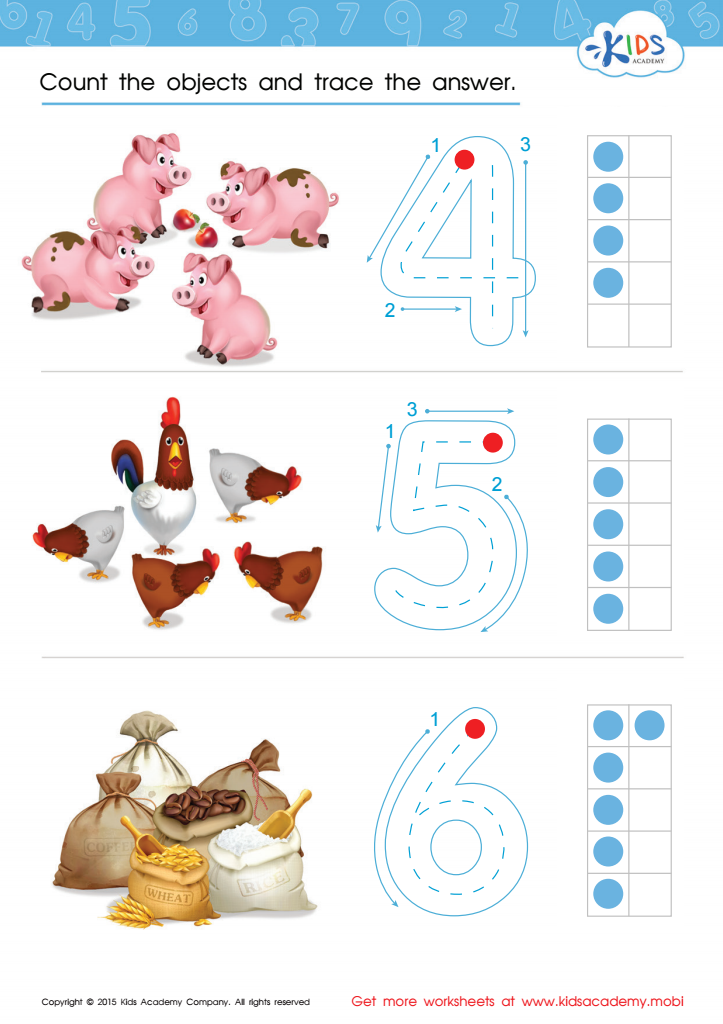

Count and Trace 4 – 6 Worksheet
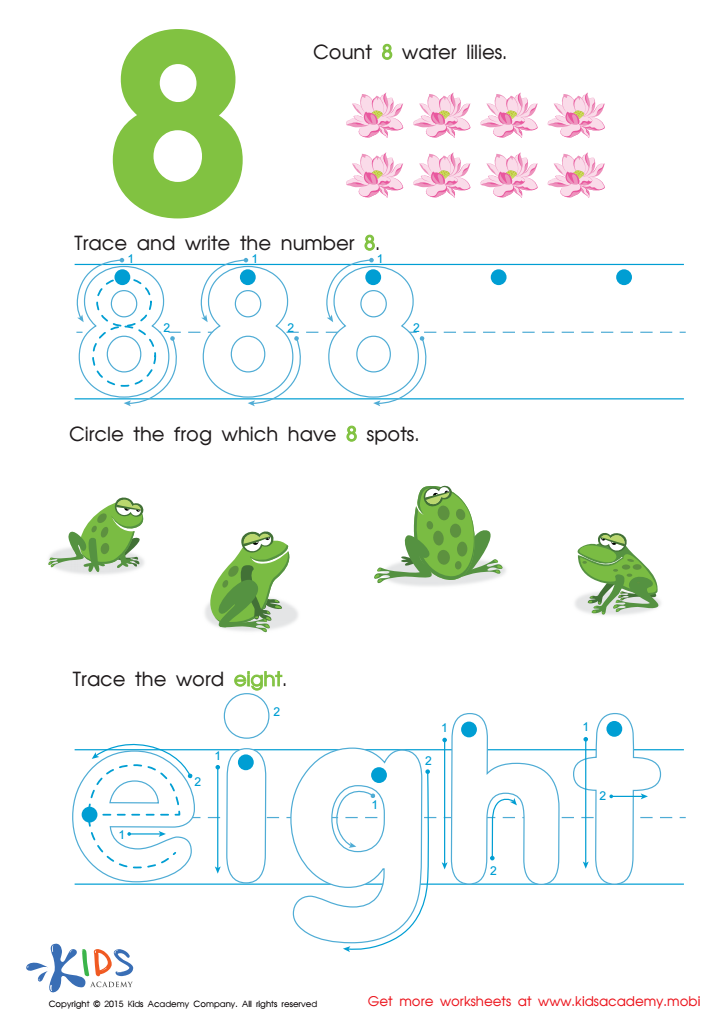

Learn Number 8 Easily Worksheet
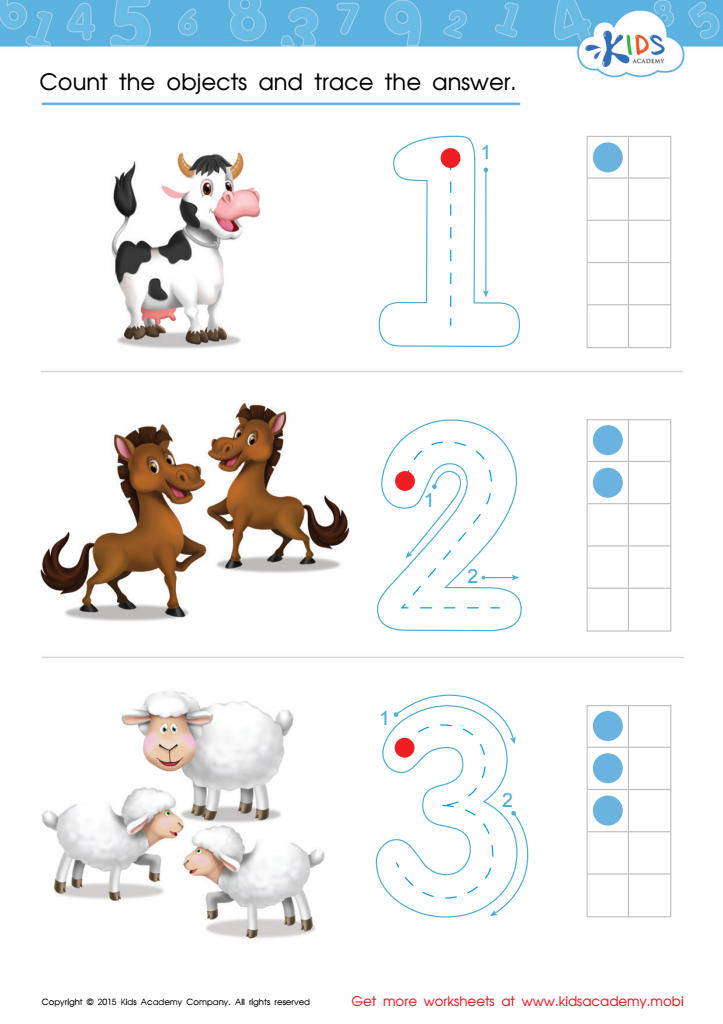

Count and Trace 1 – 3 Worksheet
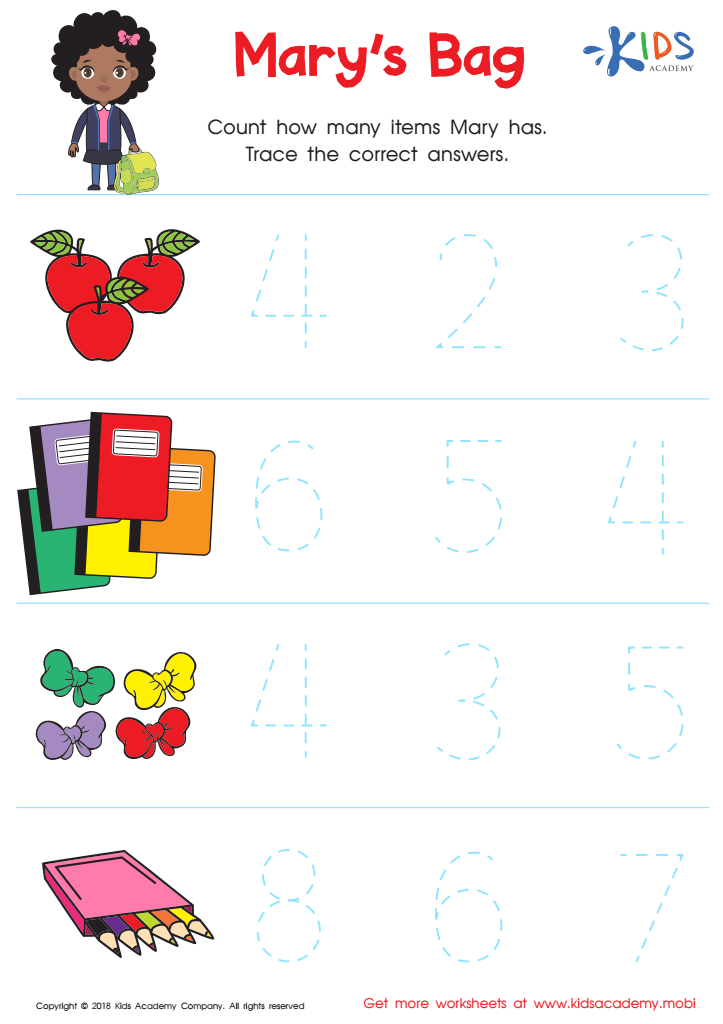

Kindergarten Number Tracing: Mary's Bag Worksheet
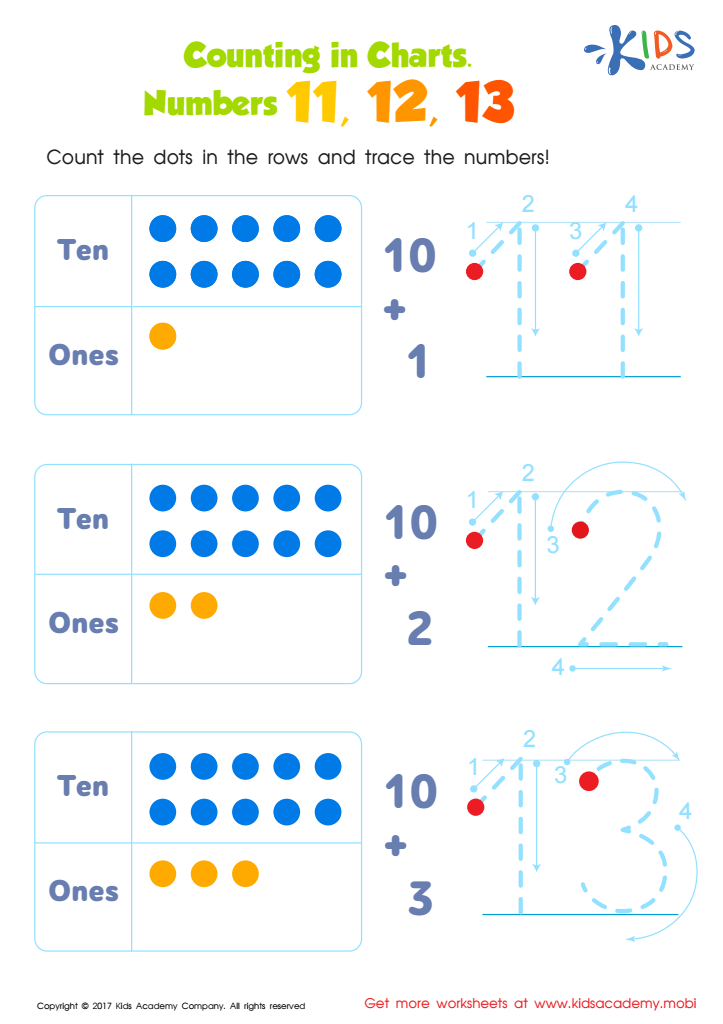

Number Tracing Worksheet For Kindergarten
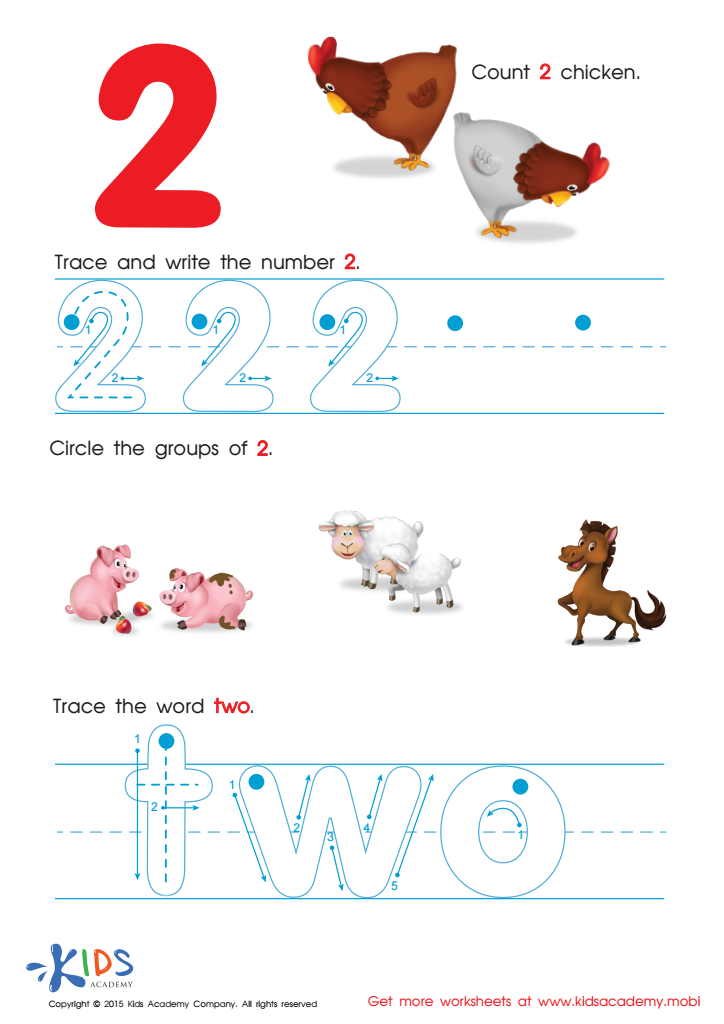

Learn to Write the Number 2 Worksheet
Parents and teachers should prioritize fine motor skill development by engaging children aged 3-7 in tracing numbers, as it is pivotal for their academic and daily life competencies. Fine motor skills involve the coordination of small muscles, particularly in the hands and fingers, to perform precise movements. Tracing numbers enhances these skills, laying the foundation necessary for writing. When children trace numbers, they practice grip control, hand-eye coordination, and muscle memory, essential for forming letters and numbers accurately as they progress through their education.
Moreover, tracing numbers inherently integrates early mathematical concepts. Children become familiar with numeric shapes, sequences, and counting fundamentals, fostering numeracy skills crucial for their academic development. These foundational skills contribute to a smoother transition to more complex mathematical operations in subsequent grades.
Furthermore, success in tasks requiring fine motor skills like buttoning a shirt, tying shoelaces, and using utensils also reflects broader life readiness. Engaging in tracing activities concurrently boosts children's confidence and eagerness to learn, promoting a positive attitude towards school.
In essence, incorporating fine motor skill activities such as tracing numbers into early childhood education provides a holistic development framework, equipping children with necessary cognitive and motor aptitudes that underpin academic success and everyday functional independence.
 Assign to My Students
Assign to My Students

